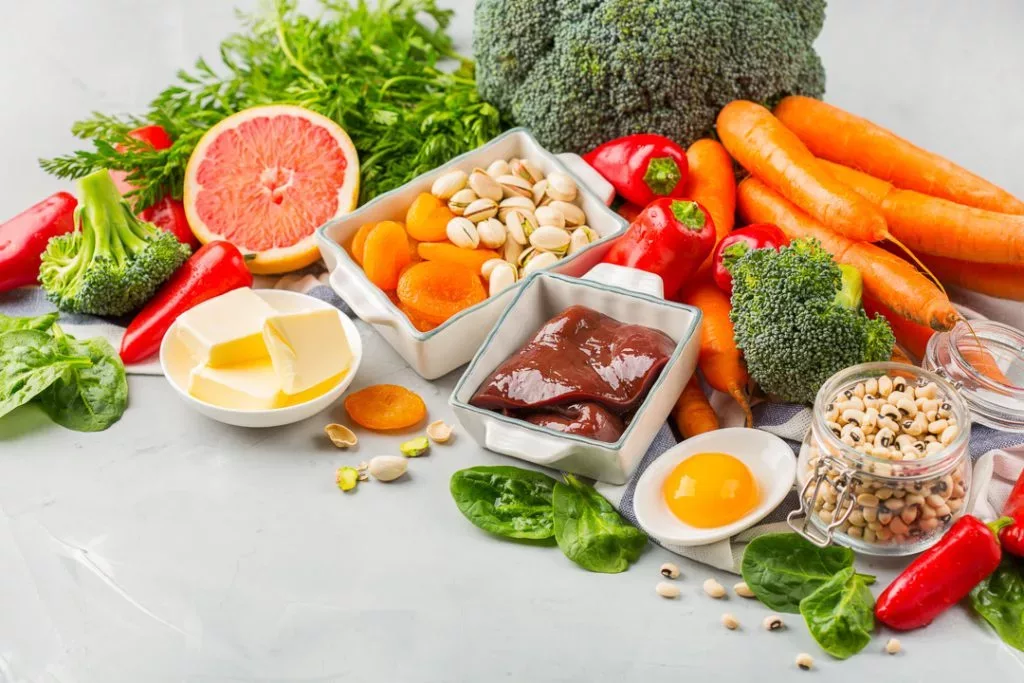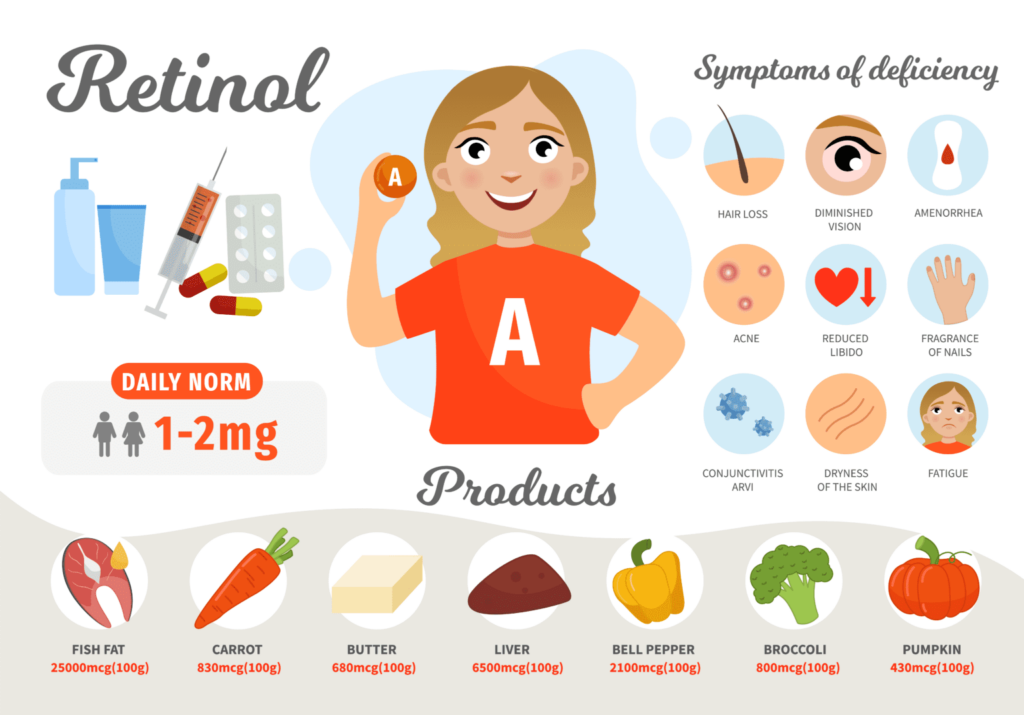
What You Didn’t Know About Vitamin A
by Selva Wohlgemuth
Registered Dietitian Nutritionist and owner of Happy Belly Nutrition
Vitamin A is an important fat-soluble nutrient that plays a wide variety of roles in the human body. It is found as preformed vitamin A (retinol) in animal products and as provitamin A (beta-carotene) in fruits and vegetables, especially papaya, carrots, sweet potatoes, and squash. Animal-based vitamin A is absorbed at a much higher rate than carotenoids, at about 70–90% vs 20–50%. Low-fat meals further reduce the total amount of vitamin A that is absorbed from either source. Generally, it is recommended that meals contain at the very least 10g of fat for optimal absorption.
The biggest and most impactful difference, however, is that plant-based beta-carotene requires extra enzyme activity to be converted into the active retinol vitamin A. Interestingly, some individuals have BCMO1 (beta-carotene monooxygenase) gene mutations, which may further reduce their efficiency of converting plant-based vitamin A to retinol by 30–70%. Approximately 45% of the western population is considered a low converter (4). This can be of great concern for those following strict vegan or vegetarian diets, which do not include animal sources rich in vitamin A.
If you are eating a low-fat, plant-based diet and are struggling with acne or get sick often, then you may consider checking your vitamin A status and adding in more animal-based preformed vitamin A foods.

Important Roles of Vitamin A
Vitamin A plays essential roles in skin health, immune health, thyroid health, eye health, iron metabolism, and even reproductive health. If you are struggling with acne or eczema, get sick often, always have cold hands and feet, have a slow metabolism, have worsening vision, and/or have iron deficiency, then you might want to check your vitamin A status. This is especially worth investigating if you eat an exclusively plant-based diet. Even if you are an omnivore, however, it is good to evaluate your vitamin A status.
How Much Do You Need Each Day?
On average, adults need 700–900mcg RAE (retinol activity equivalents) per day. People have higher needs during pregnancy and almost double the needs when breastfeeding. One must be cautious when consuming supplements high in preformed vitamin A, as this can result in hypervitaminosis, a condition caused by vitamin A toxicity. If you suspect vitamin A insufficiency, it is best to consult with your health care provider and ask for a vitamin A (retinol) blood lab for personalized recommendations.
How to Safely Boost Your Vitamin A Status
In the meantime, always start with food first. I recommend a variety of both plant and animal sources to get both types of vitamin A. This is a safe approach to increasing your liver vitamin A stores. And remember, consistency is key!
1. Enjoy fruits and vegetables rich in beta-carotene on a daily basis. Try carrots, sweet potatoes, squash, cantaloupe, and papaya!
2. Pair your fruits and veggies with quality fat (e.g., extra virgin olive oil, grass-fed butter, and coconut oil) to aid in absorption.
- Drizzle your favorite vitamin A-rich fruit with full-fat coconut milk or top with whole-fat yogurt or kefir.
- Roast carrots with avocado oil or serve a baked sweet potato with a dollop of grass-fed butter.
3. Enjoy pasture-raised eggs (yolks), grass-fed butter, and grass-fed yogurt or kefir for a daily dose of preformed vitamin A.
- Take a hardboiled egg with you for a satisfying snack.
- Use yogurt or kefir in your morning fruit smoothie.
4. Enjoy small amounts of preformed vitamin A superstars regularly. Add 2–3 oz of grass-fed liver to your diet 1x per week OR supplement with 1 tsp of cod liver oil daily.
- Try liver paté or simply sauté liver in a pan with some onions.
- If you don’t like the taste of liver, hide some in a chili or flavorful stew.
- Add your cod liver oil into a morning smoothie to mask the flavor.
Sources
- http://www.amazon.com/Advanced-Nutrition-Metabolism-Sareen-Gropper/dp/1133104053
- http://snpedia.com/index.php/Rs7501331
- http://www.ncbi.nlm.nih.gov/pubmed/19103647?dopt=Abstract
- http://www.ncbi.nlm.nih.gov/pmc/articles/PMC2745744/
- http://lpi.oregonstate.edu/mic/micronutrients-health/skin-health/nutrient-index/vitamin-A
- http://lpi.oregonstate.edu/mic/vitamins/vitamin-A#visual-system
- http://lpi.oregonstate.edu/mic/vitamins/vitamin-A#nutrient-interactions
- https://ods.od.nih.gov/factsheets/VitaminA-HealthProfessional/
